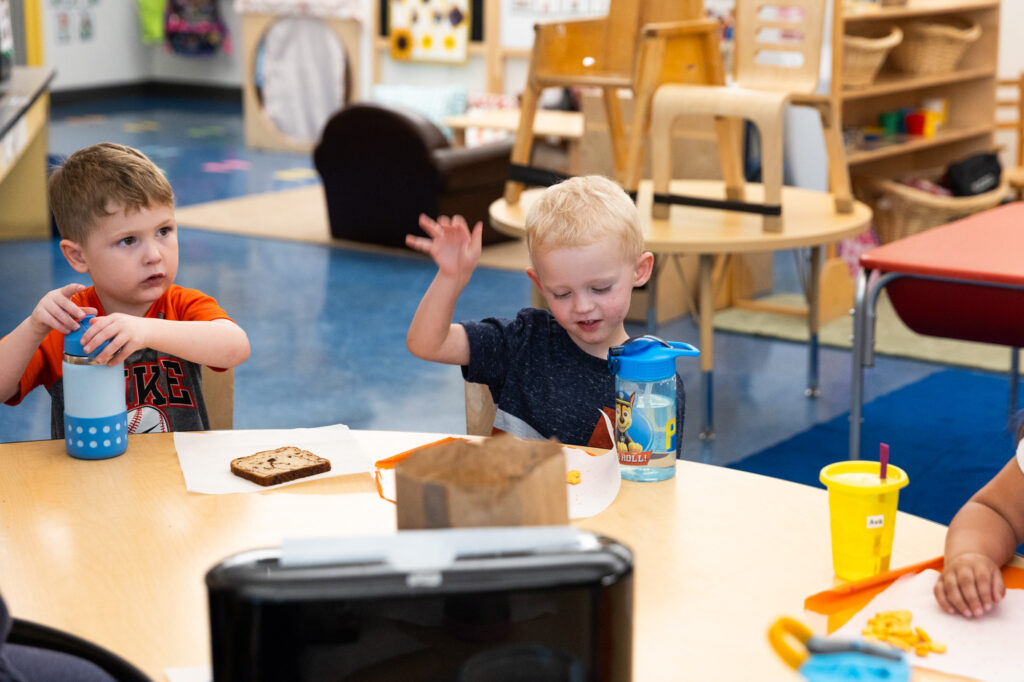
As babies grow and gain new abilities, there are many developmental milestones they will reach on their own time. Marking their progress with play and during your usual activities can create fun moments of engagement with your child.
The majority of their skill development milestones are gross motor skills, fine motor skills and speech skills. You should discuss any developmental delays with your child’s pediatrician to determine if your baby just needs more time or if there’s an underlying issue.
This article will discuss what gross motor skills are and what you can do to help your baby develop into a healthy, happy child.
What are gross motor skills?
Gross motor skills are whole-body movements that make use of the larger muscles in the arms, legs and trunk. Infants and children are expected to reach certain gross motor milestones by specific ages. These include crawling, standing unaided, walking and running. Some babies are quick to pick up certain skills, and others need a little more time.
Every child is unique, but if your baby doesn’t reach a certain developmental milestone or several of them, it may indicate that they need some extra help. Your pediatrician can provide more guidance on your child’s development. In some cases, delays can be signs of developmental disabilities or other serious conditions.
Some of the biggest gross motor skill milestones are:
- Rolling over from back to front and sitting unaided by 6 months
- Crawling by 9 months
- Walking independently by 15 months
- Climbing up and down stairs with assistance and running by 18 months
- Jumping with two feet and riding forward on a scooter or tricycle by 2 years
What can parents do to help children with delayed gross motor skills?
Developmental delays can be innocuous, and some children will learn these skills later. Other times, they may be a sign of a medical problem or a condition like developmental coordination disorder (DCD), dyspraxia or cerebral palsy.
Early detection is key to getting your child the kind of help they need. It may be as simple as some exercises you do at home, or your child might need some specialized therapy.
Here are the steps you should consider if you’ve noticed a gross motor delay in your child:
- Identify motor skill delays early — Your child’s doctor should check on developmental milestones at each preventive care visit and do standardized screenings at ages 9 months, 18 months and 30 months. If there’s any sign of a delay, they’ll be able to perform further testing.
- Occupational therapy — Pediatric occupational therapy helps your child learn new skills in the context of their daily life. Things like eating, dressing and using their hands to move objects are all part of occupational therapy.
- Physical therapy — Pediatric physical therapy can help babies develop delayed gross motor skills so they can move freely to the best of their ability. Pediatric PTs help children do exercises to increase range of motion, strength and flexibility, forming movement patterns they’ll use every day.
- Sensory processing therapy — Some babies feel too much or too little stimulation through their senses, making it hard to integrate the information they’re getting. It can be very hard for these kids to feel comfortable and secure, but therapeutic exercises can help them get engaged with play and other activities.
- Pediatric neurology — A pediatric neurologist can do diagnostic tests to learn more about how your child’s brain works. They’ll be able to suggest types of therapy, exercises or play that will help them develop the skills they need.
- At-home exercises — Guiding your child through movements and activities to help them grow is a bonding experience you can treasure. At Ability KC, we help parents learn exercises and modify them for their child’s specific needs.
How we help children with delayed gross motor skills at Ability KC
We take an integrated and personalized approach to each patient’s care for a comprehensive treatment experience. Parents are an important part of their child’s care team, and we’ll collaborate with you to determine specific treatment goals. You’ll be involved and engaged during treatment sessions, and we’ll teach you exercises to do with your child at home.
We offer a few different programs that help infants, toddlers and preschoolers develop and fine-tune their gross motor skills. Our outpatient pediatric rehabilitation program can accommodate a range of developmental needs, and we have a therapeutic preschool where kids at all ability levels can learn together while some receive therapy. Our ChAMP program is a space for kids ages 6 to 10 to work and play while developing their abilities during the summer, and there are many other seasonal programs available.
Have any questions about early childhood development and outpatient therapy? Contact our team today for more information or to schedule an initial appointment.